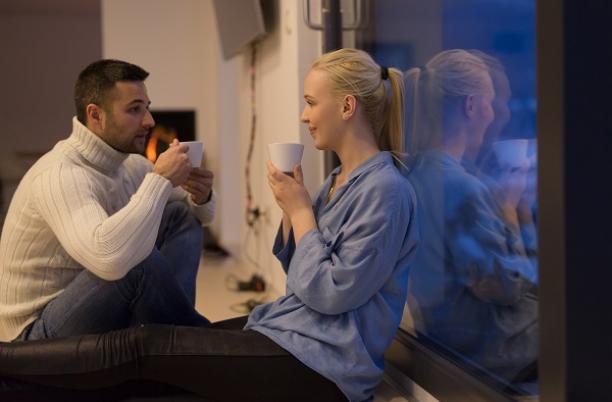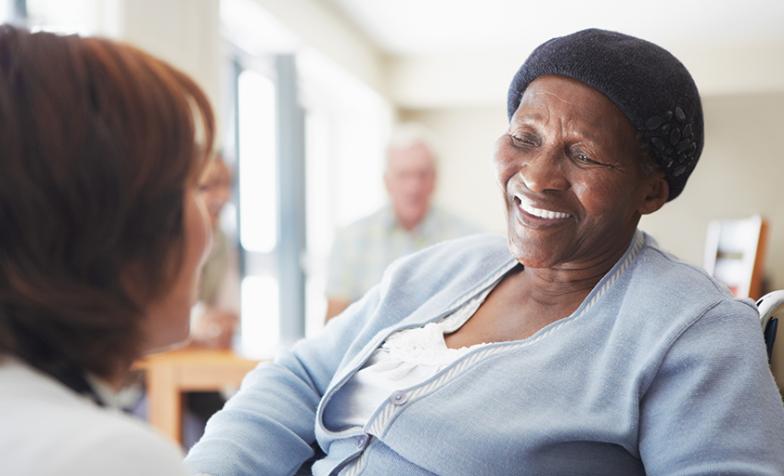
Looking after yourself when someone is dying

Caring for someone when they are dying can be very difficult. While it can feel hard to think of much else, it’s important to consider your own wellbeing too. Here you will find advice on how to look after yourself while you’re caring for someone who is dying.
Title
What's on this page
Managing your feelings
The way you feel when caring for someone who is dying can be very intense.
You might feel shock to begin with, and worry about how the other person is feeling and how you will manage their care. However you don’t have to do this alone, there is support available.
- Give yourself time to let the news sink in, and think about what help and support you might need.
- Explain clearly to family members and friends what you are going through so they can understand and support you.
- Many hospices and hospitals provide emotional and spiritual care if you want to talk to someone about your feelings about death and dying, your faith, or your spiritual beliefs. They can talk to you whether you are of a particular faith or not.
- Don’t be hard on yourself, or try to do too much. Let the person you are caring for know how you feel and that you are there to support them as much as you can.
At the bedside
If you are caring for someone who is dying in a hospice, nursing home, hospital or other healthcare setting, try remembering to do the following:
- Take plenty of breaks throughout the day. Step outside for fresh air or take a walk round the block. Hospices and hospitals often have quiet rooms or chapels that are open for people to spend time in a quiet space.
- If you are in an open hospital ward, don’t hesitate to pull the curtain round to get some privacy, and let the nursing staff know that’s what you want to do.
- Ask staff for help if you need it, for instance if you need help to turn your loved one while they’re in bed, or if they become distressed and you’re unsure what to do.
- Some hospices have dedicated rooms for family and friends to stay in. Hospitals usually don’t so if you plan to stay overnight take a comfortable pillow and blanket. If they are in a side-room you may be able to bring in a bedroll so you can sleep on the floor, but check with the nursing staff first.
- Consider taking in your own food and drink in case there isn’t anywhere nearby to get this from.
- It is likely that you will be making and receiving lots of phone calls from family and friends, so make sure your phone is fully charged and topped up with credit if necessary.
- Hospitals often charge for parking, while some offer concessions for family carers. Ask ward staff or car parking office about this, and if necessary make sure you have plenty of change for the car park.
At home
If you’re caring for someone who is dying at home, you will have the support of healthcare professionals such as community palliative care nurses.
However being someone’s carer in the last weeks and days of their life can be a big emotional and physical challenge, so make sure you take time to look after yourself and ask for help if you need to.
- Don’t hesitate to ask the nurses for help when they are there, whether it’s for something practical like pain relief for your loved one, or you need to talk about how you are feeling. Find out where to get support as a carer on this page.
- Tell friends and/or family members what is happening so that they can help you with things like childcare, looking after pets, or by just having a chat.
- Stock up on easy or ready-made meals, or ask someone to help with food shopping. You might not have the time or motivation to cook for yourself, but make sure you eat something nourishing every day to keep your strength up.
- Take regular breaks. Consider organising short break care so you can take time for yourself and to rest. There is information about how to do this on the NHS website
- The person you are caring for might want to see lots of their friends and extended family, or they might not want to see anyone at all. This can change from day to day so check with them before inviting people to visit.
- Similarly, some people will want to visit to say their goodbyes, while others may not, as they may prefer to remember the dying person as they were, or may find it too upsetting. Try not to take this personally; everyone feels and responds to grief in very different ways.
Our Frontline
Hospice UK is proud to be a part of Our Frontline, a new round-the-clock mental health and bereavement service for frontline workers.
Thanks to the support of NHS England and The Royal Foundation, we are now able to provide a new Counselling and Trauma Helpline, which is operated by the ‘Just B’ team at Saint Michael’s Hospice.
Our Frontline is a partnership between Shout, Samaritans, Mind, Hospice UK and The Royal Foundation of the Duke and Duchess of Cambridge. It offers round-the-clock one-to-one support, by call or text, from trained volunteers, plus resources, tips and ideas to look after your mental health.



